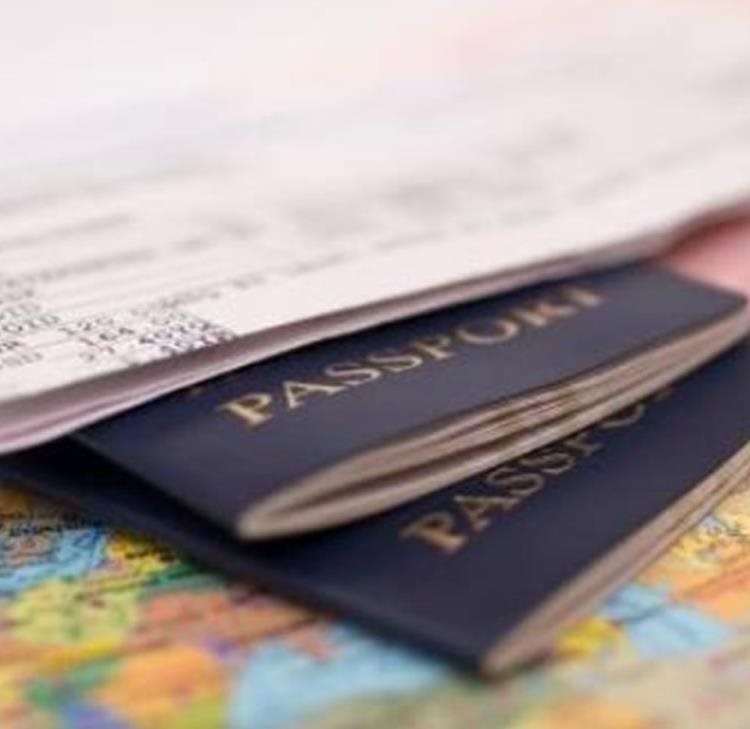
Business immigration advice for businesses based in the UK or overseas
We provide immigration advice for corporate clients, organisations, education or health providers, offering practical solutions to workforce planning when they need to recruit talents from abroad.
Since the end of the free movement between the United Kingdom and the EU, organisations continue to face unprecedented recruitment issues and must learn to navigate an increasingly complex and ever-changing myriad of immigration rules.
Our immigration team provides a one-stop strategic service combining our expertise of business immigration with our experience of UK employment law.
When appropriate, we also work closely with our corporate team and company secretarial service to offer you a seamless experience.
We tailor our approach to the size of your business or organisation and have a wide-ranging expertise of various sectors including luxury retail, catering, new technologies, health and education.
We always provide a personal, practical approach which enables us to identify the best options for you based on your objectives and implement clear, strategic and cost-effective solutions when your organisation needs to employ or continue to employ overseas staff in the United Kingdom.
In particular, we have invaluable expertise in assisting new and more established EU businesses to employ the workforce they need when they set up a UK subsidiary.
Our specialist immigration team is bi-lingual (French and English).
Immigration and employment law for French Companies
We have advised French companies on the immigration and employment aspects of operating a business in the United Kingdom for 30 years. Our experience and expertise are widely recognised. We can assist new or more established businesses to navigate the legal differences in operating in these two countries.
We also assist on matters involving other jurisdictions through our network of carefully selected international law firms. We are not required to recommend a member of the network. No referral fees are paid.
What we do
We provide a comprehensive range of immigration law services including:
- Sponsor Licence applications – support with applications, renewals and assisting with the compliance obligations organisation have as licence holder.
- Workforce planning advice around the recruitment and retention of non-UK workers from outside the UK - including how to recruit a non-UK national, identity documents, and the right to work check requirements to prevent illegal working.
- Specialist employment and immigration law advice - providing seamless added-value advice on connected HR matters, such as the termination of illegal workers, document checking and recruitment.
- Support with in-country & overseas visa applications under the Points Based System as well as other immigration categories
- Training your key staff who are responsible for ensuring the organisation complies with immigration rules and regulations.
- Reviewing your HR systems, reporting and record keeping duties to support with UKVI compliance visits.
- Supporting you to adhere to the government’s prevention of illegal working requirements.
Featured experience
Financial services provider
Advising a financial services provider on UKVI audit requirements and the urgent renewal of its Licence to Sponsor in order for it to continue to recruit senior executives from the US which were key to the success of the business.
FTSE 100 retailer
Advising a FTSE 100 retailer on a Sponsor Licence application and urgent Tier 2 (General) visa application for an executive director and his dependents - visas were obtained successfully within a month of instruction.
NHS trust
Advising an NHS Trust on the prevention of illegal working and the fair dismissal of an illegal worker, leading to their successfully passing a UKVI audit.
Eligibility for tier 1 exceptional talent visa
Providing significant support to a US actress/producer on her eligibility to apply for a Tier 1 exceptional talent visa.
Related expertise
You may be interested in...
Legal Update
Right to work update: eVisas
Press Release
A review by the Migration Advisory Committee into the UK’s graduate visa route for international students
Opinion
Increase to 20 hour limit on supplementary employment for Health and Care Worker visa holders
Opinion
Right to Work Checks: Changes from 6 April 2022
From 6 April 2022, right to work checks on all migrant or settled prospective employees must be online and checks on British or Irish nationals will be manual (free) or digital (charged for).
Opinion
The new point-based system: a complex and costly system in need of simplification
The immigration control tools now being used by the UK government which combine high costs, complex application system, salary threshold and exclusion of low skilled worker are having a significant detrimental effect on the business ability of UK based companies to employ EEA staff in the UK.
Opinion
All change? Nationality and Borders Bill
Whilst the Bill still has to clear the House of Lords, there is a great concern over the impact of the Bill.
Legal Update
Covid-19 adjusted right to work update
Advice for employers carrying out right to work checks has been updated as a result for Covid-19, replacing 18 June 2021 guidance.
Opinion
New Visa routes announced - UK Innovation Strategy
One aim of the Innovation Strategy is to generate innovation through new Visa routes - what does this mean for UK businesses?
Opinion
Graduate Visa: new immigration route launched
The new Graduate Visa is now live. The route is available to overseas students who have completed a degree at undergraduate level or above and have a visa as a Student in the UK at the time of application.
Legal Update
EU Settlement Scheme: deadline to apply 30 June 2021
How organisations can support their EU national employees with EU Settlement Scheme applications with the ‘grace period’ ending 30 June 2021.
Legal Update
Right to work: updated guidance 18 June 2021
Reminder for employers that 'An employer's guide to right to work checks' has been updated for the end of the grace period on 30 June 2021.
Opinion
The frontier worker permit
All EU citizens who were not residing in the UK by the end of December 2020 and want to live and work in the UK from 1 January 2021 must apply for a visa as a result of Brexit.
Opinion
Right to work checks change to temporary Covid-19 adjustment date to 20 June 2021
The Home Office have announced that it will end their temporary adjustments to the process of checking an individual’s right to work in the UK on 20 June not 17 May 2021 as initially planned.
Opinion
The UK - India migration deal
The Young Professionals Scheme will make it easier for young Indian citizens and young Britons to access visas.
Legal Update
Immigration: statement of changes – March 2021
The Home Office have published a new statement of changes to the Immigration Rules to take effect on 6 April 2021.
Opinion
New visa for British National (Overseas) (‘BNO’) Status holders
Hong Kong’s British National (Overseas) passport holders and their immediate dependants will be able to apply under a bespoke visa route opening from 31 January 2021.
Opinion
Immigration rules post Brexit
Free movement between the UK and the EU ended on 31 December 2020. Since 1 January 2021, a new points-based immigration system applies to all migrants wanting to come to the UK, whether they are EU citizens or not.
Guide
Brexit overview: your people and Brexit
Despite the uncertainty, however, we can help you take some sensible steps now to prepare your workforce for the implications of Brexit.
Legal Update
EU Immigration: two-fifths of businesses will not reallocate low-skilled roles to new British workers after new immigration regime in place
From 1 January 2021, freedom of movement between the UK and EU will end and the UK will introduce an immigration system that will treat all applicants equally, regardless of where they come from.
Legal Update
Q & A: UK’s new immigration system: how will it impact EU Nationals and their employers?
On 31 December 2020, free movement of people will cease to operate in the United Kingdom as a new immigration system will be introduced from 1 January 2021 and the government has provided further details of the new system on 13 July 2020.
Legal Update
Immigration: further details published
This month has seen Further Details of the UK’s new Points-Based Immigration System published.
Legal Update
The impact of the Covid-19 distancing measures on right to work checks
In unprecedented times of self-isolation and social distancing, the Home Office has now published new UK immigration guidance on right to work checks to adjust the rules on manual checking of original documentation and adapt to the new situation.
Legal Update
Points-based Immigration System
The UK government has now unveiled its proposed points-based immigration system which will come into operation from 1 January 2021.
Legal Update
Brexit - The treatment of patients from the EU
To date patients from the EU have been able to benefit from reciprocal healthcare arrangements, including the EHIC, S1, S2 and S3 arrangements, which allow EU and EEA nations to freely access health and social care services in other member nations as if they are resident.
Legal Update
The new Points Based System - the Government begins consultation with selected groups
It was announced on 17 June 2019 that the UK Government will start discussions with 5 new advisory groups in preparation for the new skills-based immigration system that will be introduced following the UK’s departure from the European Union.
Legal Update
Children in care and immigration
When dealing with children with care and immigration issues, both the Family Court and the Immigration Tribunal must act in the child’s best interests.
Legal Update
Headline Brexit issues for the energy sector
In this update, we review various aspects of a ‘no deal’ Brexit and the Withdrawal Agreement which organisations in the energy sector should know about.
Legal Update
How will Brexit affect businesses from an immigration perspective?
Legal Update
Changes to Tier 1- Introducing the New ‘Innovator’ and ‘Start-up' visas
The Home Office recently announced substantial changes to Tier 1 of the PBS.
Opinion
Extension to exemption from Tier 2 visa salary threshold for STEM and Mandarin teachers
The Government has announced that the current exemption from the £30,000 minimum salary threshold for Tier 2 (General) sponsored workers in a number of public service professions has been extended.
Legal Update
Further update on EU immigration in the event of No-Deal
The Government has recently provided new guidance for EU nationals coming to the UK in the event of a no-deal Brexit.
Guide
Summary of main duties and responsibilities as a Tier 2 (General) Licensed Sponsor
We have set out below a summary of the main duties and responsibilities that you will have to the Home Office, once you have successfully obtained your Licence to Sponsor.
Opinion
Home Office to modernise right to work checks
In April 2018 a Right to Work Checking Service was launched to allow individuals to demonstrate their right to work in the UK. Individuals are currently able to review their right to work record online and share a code with their employer to allow them to gain access to the record.
Guide
Overview of the UK immigration system
Non-EEA or Swiss nationals must score a specified number of points to come and work, set up business, or study in the UK.
Guide
Business visits to the UK - permitted activities
The following is an extract from the current UK Immigration Rules and outlines which activities are permitted whilst in the UK on a business visit for the most common types of visits that we come across.
Legal Update
Modern Slavery Act 2015 update – proposed changes to section 54 requirements
Section 54 of the Modern Slavery Act 2015 now requires any commercial organisation which supplies goods or services in the UK and has an annual turnover of £36m or more to publish an annual slavery and human trafficking statement.




